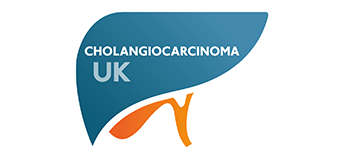Immune cell therapy – the answer to CC?
There’s been a huge amount of press coverage over the last week about the work of researchers at the US National Cancer Institute and the success they have achieved in harnessing a person’s own immune system to fight cancer.
Of great interest to all of us, of course, was that the patient who received this treatment had an advanced cholangiocarcinoma, which had spread to her liver and lungs, despite undergoing chemotherapy.
The immune system treatment involved researchers at the National Cancer Institute sequencing the genome of Melinda Bachini’s cancer and identifying cells from her immune system that attacked a specific mutation in the malignant cells. Then they grew those immune cells in the laboratory and infused billions of them back into her bloodstream.
Some important points to note:
- Prior to the cell infusion, Melinda had to go through a powerful and gruelling bout of chemotherapy to kill off any other immune cells.
- The process required highly sophisticated techniques in immunology, and produced a treatment tailored to only one patient.
- And, Melinda is not cured: Her tumors are shrinking, but not gone.
We realize that an experiment on one patient cannot determine whether a new treatment will work for all – but this really does seem to point a new way forward, and has raised a lot of hopes. AMMF asked some UK cholangiocarcinoma specialists for their thoughts – most have come back with similar views and comments, which summarised are: ‘this is great news, but it will be some considerable time before it is fully proven and available for more than a few very selected patients’.
Below in full are two of the comments we received, both from oncologists – Dr Harpreet Wasan and Dr John Bridgewater, each of whom specializes in cholangiocarcinoma, and a final comment from HPB surgeon, Professor John Primrose:
From Dr Harpreet S Wasan – Consultant & Reader in (Medical) Oncology, Lead for Clinical Phase Trials, Department of Cancer Medicine, Hammersmith Hospital, London
“Patients and relatives undergoing cancer treatment understandably want to be reassured that they are having the best available treatments.
The treatment for biliary and gall bladder cancer is currently standardised which should make the initial options more straight forward:
1) Can the tumour be operated by the liver surgeons in an expert centre?
2) If not, then Cisplatin/Gemcitabine chemotherapy is the global standard of care (UK ABC-02 trial)
All other treatments are unproven (experimental) and there are also often clinical trials as options.
New treatments are not always better, despite appearing promising. New therapies can be more toxic – potentially outweighing the possible benefits. Or they may just not work : for example, the UK has shown this recently with PDT (Photodynamic Therapy), where we thought this was going to help, but the patients who got PDT actually did worse. This was a surprise to everyone, but was proven in a randomised trial.
Newer technologies and treatments are rapidly developing and can appear “sensational” as in the recent development highlighting the work of Professor Rosenberg in the US. Professor Rosenberg has been doing immune trials for over 30 years, and has now managed to control (not cure ) the disease in one patient with a very complex and expensive technology. We don’t know if this is by chance or how long it will work.
It requires not only genomic sequencing but also the creation of (billions of the patient’s) immune cells – exposed to the patients specific mutation and re-infused back. So, this is
true personalised therapy.
Professor Rosenberg’s team has also noted that they have no mechanism of recreating on a large scale, but clearly they need to do so in at least 10-20 patients initially to understand its true risk and value first, and reproducibility. This treatment was also very toxic.
Even without this therapy, the UK ABC-02 trial in 415 patients showed occasional patients with standard therapies can make it to 3-4 years, so the true value of a therapy cannot be established after only one patient is treated. “
From Dr John Bridgewater – Senior Lecturer and Consultant in Medical Oncology, UCL Cancer Institute, London
“The news about successful immunotherapy in a patient with cholangiocarcinoma is excellent, but it will be a while before this is generally available.
What was done was that the cancer was sequenced to find out what mutations could be targeted. The patients’ own natural immune cells (T-lymphocytes) were then harvested and those cells that targeted the known mutations were grown up outside the body and then given back to the patient.
Similar strategies have been used successfully in the past but mostly for cancers with an infective cause such as Herpes virus related cancers and never previously targeted at mutations.
This is great work and fantastic news for the patient, but extremely costly in laboratory and clinical time and effort and it would take a great deal of resource to set up a programme for any number of other patients.
In addition, it is still very experimental and there are many things we do not know. In how many other patients did they try and it was not successful? How durable is the benefit? Are certain mutations better than others? Are certain cancers better than others?”
And a final comment from HPB surgeon, Professor John Primrose:
“What is currently important is providing sensible and balanced advice to everyone who needs it … and one of the most important areas in terms of improving outcomes is to ensure that all patients with biliary cancer are seen in centres of excellence at the earliest possible stage, and have the opportunity to join a clinical trial where appropriate.”
(Professor Primrose is President of the Associations of Surgeons of Great Britain and Ireland, Director of the Wessex Clinical Research Network, and Professor of Surgery at Southampton.)
To read more on this research:
http://www.nytimes.com/2014/05/09/health/doctors-use-patients-immune-cells-to-shrink-cancer-
tumors.html?_r=1http://www.sciencemag.org/content/344/6184/641.abstract
May 2014







